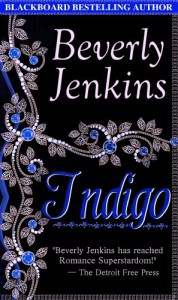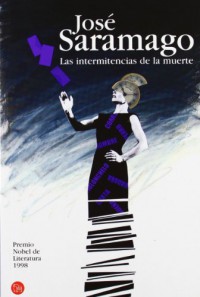Locus Amoenus: All By My Shelf
Watch the amazing Locus juggle several books at once, and try not to drop any! Free admission.
Currently reading



Reading progress update: I've read 12%.

I really hope Maria gives Oliver a hard time during their agreement. And he certainly wasn't expecting that sword, haha!
 2
2
 3
3
Reading progress update: I've read 17 out of 240 pages.

Pym is becoming such a comfort read for me: within the first page or two, I saw the words anthropologist and vicar, and I got a big stupid grin on my face. Let's see how this story goes!
Reading progress update: I've read 93 out of 246 pages.

I'm still reading this one for Discworld Book Club, and very much enjoying it! I'm hoping to finish within the next week, so I can get started on our May reads.
Final Thoughts: Crooked House

I can see why this was one of Christie's own favorite novels; it is, in the end, as much about writing a mystery as it is about the mystery itself.
It's also one of the few of her novels where I've had a suspicion about the murderer's identity before it was revealed (I'm normally easy to fool, haha!). I didn't want it to be that particular person, though, which is why my mind kept shying away from it. And that mirrors the family's own preoccupation with the idea that it was important to find out that "the right person" had done it.
The themes of family and heredity were also really fascinating. As much as old Leonides had loved his family and worked to keep them together, it was clearly not what they themselves needed or wanted. Especially with that trait of "ruthlessness" that Sophia often refers to. In the end, the members scatter, hopefully to live more fulfilling lives.
Finally, the fact that the book's narrator was both investigating and about to marry into the family gave the book an interesting feel. The last chapters were unsettling and full of suspense, since it's critically important for Charles not just to have someone charged, but to make sure it's the person who actually did it. After all, it's not a case he's going to be able to walk away from once it's closed.
 8
8
Final Thoughts: Indigo

I'm so happy I discovered Ms Jenkins! This novel was absolutely amazing, so thanks to my reading buddies here for bringing this author to my attention. Hester's story was heartbreaking and uplifting, and the blend of history and fiction was seamless. I appreciated the fact that the story behind the "traitor" was nuanced, and not a simple whodunit; it was shocking and sad, but ultimately resolved in the best way possible.
I also loved the fact that there was a bibliography at the end, so I can read up on the Road. I do remember visiting Harper's Ferry on a family trip as a child (I spent about a decade in the U.S., and my parents wanted to explore all facets of its history while we lived there), where there's a memorial museum to Brown and his daring, tragic attack. But now I want to know more about the everyday men and women who made these escapes possible.
My one question is: Does Raymond have his own book? Because I would absolutely read it.
 5
5
Reading progress update: I've read 40%.

Oh, that John Brown.
I love, love, love this story. It's so well written, and the characters are so amazing. And it blends fact and fiction beautifully. Ms Jenkins definitely has a new fan here.
Also, I love how Galen insists on calling Foster Frederick.
Reading progress update: I've read 54 out of 246 pages.

I'm really enjoying this so far! Even though I'm juggling a few books at once (as usual), every time I come back to this one it feels like a comfort read. I love the way Pratchett thinks, and the way he sees the world and its inhabitants:
"He was tall, red-haired and freckled, with the sort of body that seems to be only marginally under its owner's control; it appeared to have been built out of knees."
Reading progress update: I've read 15%.

Hester reached down and picked up the cup. In a calm voice she said, "Fine. Don't drink it. I shall simply put it in your food like one would for a stubborn child." As she headed to the concealed door he growled, "You wouldn't dare." She turned back. "If only that were true." "Hester Wyatt!" "I'll be back later." Galen was still bellowing her name when the wall swung closed.
I love Hester. :)
Seriously, I'm so glad I joined in on this read, because Indigo is blowing me away.
Puffy Shirt Bodice Ripper Buddy Read!

Say that three times quickly! :D
WhiskeyintheJar and I were chatting about the wonderful, quirky world of historical bodice rippers, the only place that, in Whiskey's words: "can have these two scenes, impassioned talk involving lead up to American Revolutionary War and sexual purple prose consent issues, in the first 15% with its own certain je ne sais quoi." And I realized it's been way too long since I picked up one of these. So I proposed a buddy read, which Whiskey graciously accepted, and I went off to GR Listopia for some bodice ripping goodness. And behold, there's a list called - I kid you not - The Puffy Shirt. Because it's also not a bodice ripper if there's no puffy shirt half draped over the hero, right?
So, starting May 6th, we'll be reading The Truth About Lord Stoneville, by Sabrina Jeffries, and you're all invited to join in! Marriage will be faked, an innocent will be seduced, and a rake might be reformed! And shirts will, of course, be puffy.
Final Thoughts: The Floating Admiral

This is a hard book to review, because its very nature means that it will have certain unavoidable imperfections. By passing the manuscript around to have chapters added instead of collaborating on a complete piece, it's impossible to predict where the plot will go.
Of course, that also makes it incredibly fun, and I could feel that gleeful joy when I read certain chapters where an author had thrown themselves all in with the game, and often tried to trip up whoever was to follow!
The only issues I had were that the clues piled up too heavily at some points (which the author of the "39 Articles" chapter did his best to summarize), which made the story drag; and that I never got a good sense of the geography of the story. Each author had their own vision of what the town and properties looked like, and this made things confusing for me. So I had to devise my own.
The author of the final chapter did the best job he could (the introduction pointed out that this was, of course, the hardest job), and although there were aspects that didn't quite work for me, it was fairly elegant and had some great twists at the end.
I did appreciate seeing everyone's solutions at the end. My favorite was Christie's, which was exactly where I thought the story was going at that point (with Elma being Walter), and would have been a lot of fun. Since Christie is the only author of the group that I've read before, I guess it makes sense that my mind went in that direction! I also really liked Sayers'. And I enjoyed Knox's (I think it was him) summary of how he thought the authors previous to his chapter had been thinking; for example, the fact that he didn't think Canon Whitechurch would have wanted to implicate the Vicar, as a fellow man of the cloth; and that he felt completely baffled by his immediate predecessor's chapter (Sayers') and had a hard time following up.
So all in all, a great read. If there are similar collaborative works, I'd be interested in checking them out!
Reading progress update: I've read 169 out of 313 pages.

I'm really enjoying this story, even though sometimes I feel like I'm back in school trying to decipher math problems ("if a boat leaves the dock at high tide..." haha). What I most like is that the authors really seem to be having fun leaving clues for one another; there's a sense of mischievous glee at times, and even some parts where an author seems to be calling out their colleagues:
"Inspector Rudge was subconsciously aware that his enquiries were becoming unduly dispersed and that none of them by itself had so far earned the description of 'thorough.'"
As the introduction points out, in a work of this nature there's no guarantee that the clues will be interpreted (or even picked up) a certain way by other members of the group. So, even though I have some ideas concerning identities and motives, I have no idea how it will be brought together in the end. I look forward to the section with everyone's solutions, though!
 5
5
Reading progress update: I've read 50 out of 309 pages.

Oh, I have a crazy theory about Miss Fitzgerald... I just hope one of the authors picks up on it (I'm currently on Chapter 3).
Reading progress update: I've read 30 out of 309 pages.

One of the things I'm going to enjoy most about this read is getting to know the styles of the various authors. Of the bunch, I've only read Christie (embarrassing, I know, haha!). So I look forward to becoming acquainted with potential future favorites.
Final Thoughts: Las intermitencias de la muerte

Al día siguiente no murió nadie.
In his novels, Saramago often liked to explore the deep-reaching consequences of having a single brick removed from the foundation of society, and watching everything come down. In this case, it's death. At the start of the book, we're told that the citizens of an unnamed country have stopped dying. At first, immortality seems like a great deal, but the truth hits home almost immediately. For one, the fact that people aren't dying doesn't mean they're still not aging or having terrible accidents and illnesses. The strain on hospitals and old age homes is devastating, and the funeral industry is desperate. Soon, a maphia (with a ph, as they say, to distinguish themselves from the traditional organization) steps in to "help" by escorting people to the border so they can finally give up the ghost on the other side. Meanwhile, the church is having an existential crisis (since, as they say, their entire mission depends on death) and the government is trying to juggle all these factors. A few months later, death returns, but with a change in MO: those scheduled to die now receive a letter a week before, informing them of their impending fate. Death herself sees this as a good thing; society, of course, does not.
The second part of the novel hones in on one prospective recipient of death's (with a small letter d, as she corrects the newspaper editors who try to capitalize it) letter. Inexplicably, the envelope death sends him keeps coming back to her, and she needs to find out why. And here I can't really say any more about the story, because it would spoil what happens next.
I believe this book is translated into English as Death with Interruptions, and is definitely worth a read if you haven't explored any of Saramago's work. His writing style is very unique, with few full stops or paragraph breaks, but it flows beautifully in a stream of consciousness way that makes it worth the effort.
 5
5
Final Thoughts: Quartet in Autumn

I think that if this had been the first Pym book I'd read, I would have had a very different perception of her style and thought process. Not better or worse, just very different.
In a sense, this does feel like a successor to Excellent Women. In another time, Letty and Marcia might have been two of the gentlewomen Mildred spent her days looking after. Here, we have Janice the social worker, for whom the elderly act as props to define her own identity. Mildred truly seemed to care for her gentlewomen, because she could see herself as one of them; Janice is far more removed from the people she follows.
Which brings us to the topic of the fragile social net, and how people fall through. The society of Quartet is one of alienation, with people orbiting each other indecisively, letting friends and relatives slip away into oblivion. In Excellent Women, Mildred participated intensely in the lives of her friends and neighbors; she had no qualms about telephoning Everard's mother, a complete stranger. Here, a group of people who have shared the same office space for years make all kinds of excuses to not become involved in each others' lives.
I would have liked to see what happens to Edwin and Norman after their retirement. Edwin, like Letty, has a social network and interests to keep him occupied. Norman, however, could very well go down the same road as Marcia; although the fact the he doesn't plan to live in the house she left for him was encouraging.
The character I have most hope for in the end is Letty. She comes to realize that she doesn't have to follow predictable patterns, and her thoughts at the end of the novel are similar to Mildred's at the end of Excellent Women: "life still held infinite possibilities for change."






 12
12